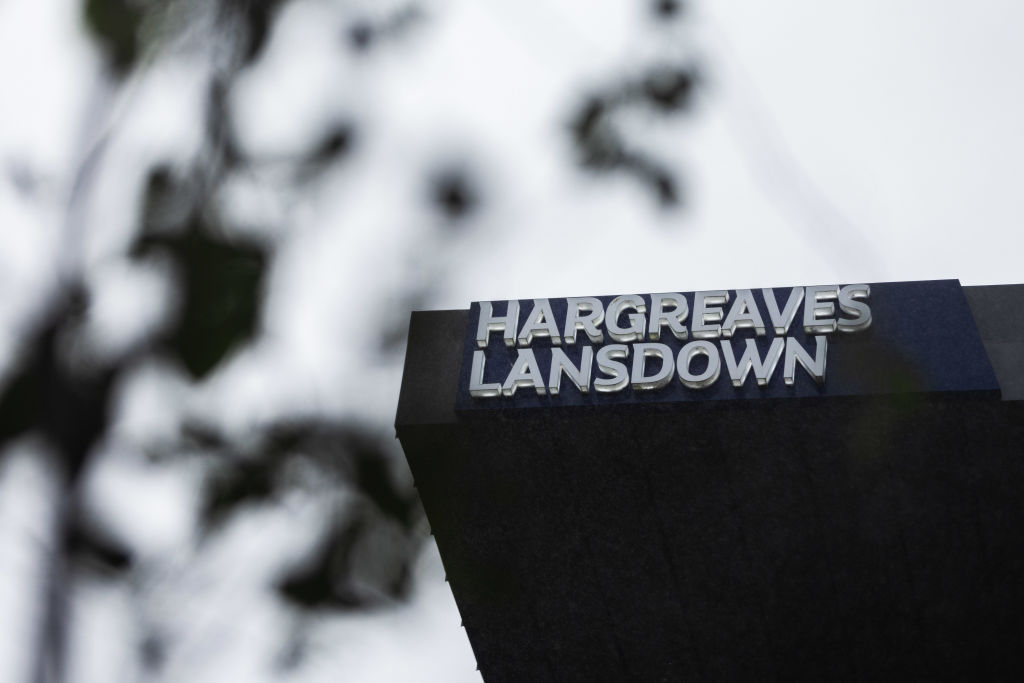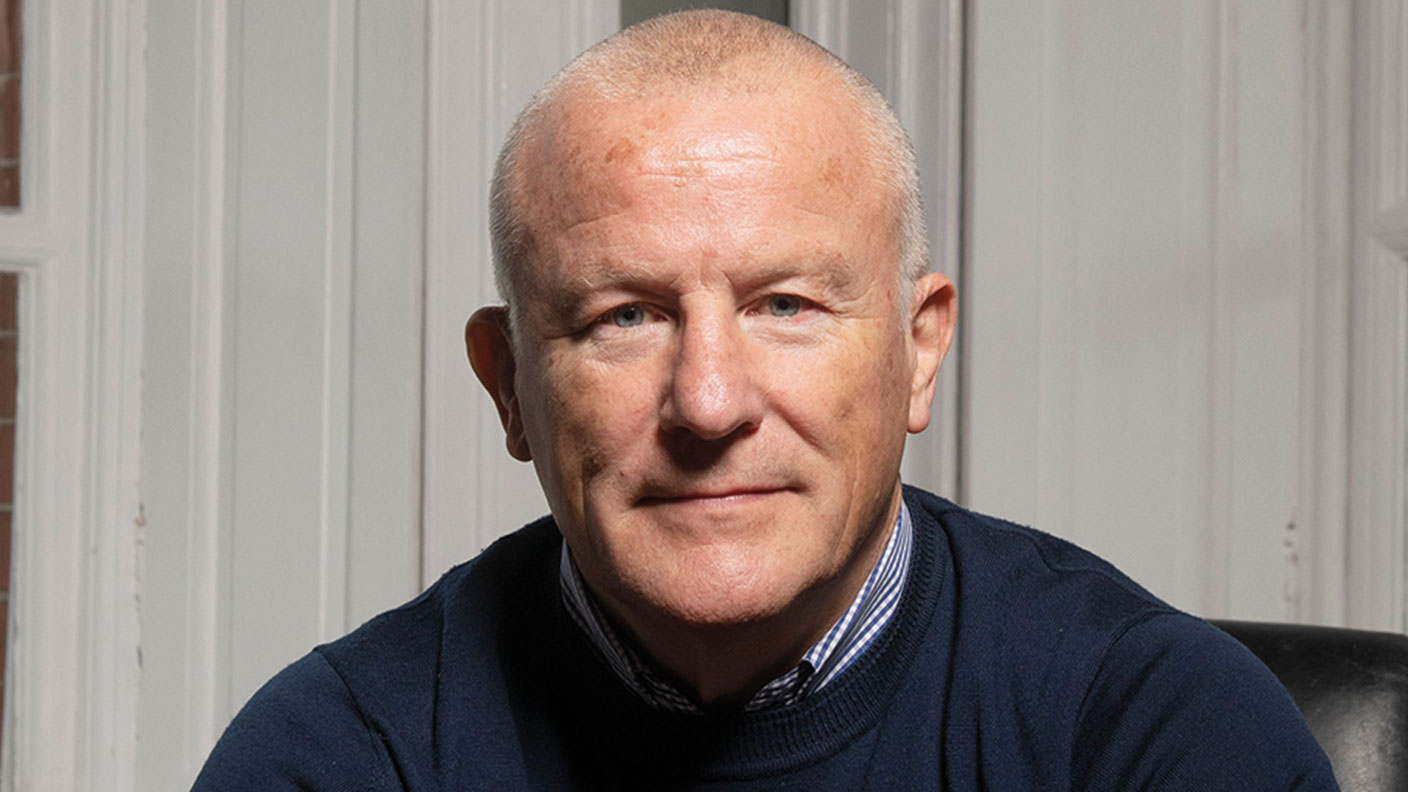After the Woodford fallout, is it time to buy Hargreaves Lansdown and Patient Capital?
Two of the biggest casualties from Neil Woodford’s fall from grace are his investment trust - Woodford Patient Capital - and broker Hargreaves Lansdown. John Stepek looks at whether you should snap them up or leave them well alone.

Get the latest financial news, insights and expert analysis from our award-winning MoneyWeek team, to help you understand what really matters when it comes to your finances.
You are now subscribed
Your newsletter sign-up was successful
Want to add more newsletters?

Twice daily
MoneyWeek
Get the latest financial news, insights and expert analysis from our award-winning MoneyWeek team, to help you understand what really matters when it comes to your finances.

Four times a week
Look After My Bills
Sign up to our free money-saving newsletter, filled with the latest news and expert advice to help you find the best tips and deals for managing your bills. Start saving today!

Quick reminder: Dominic and I will be talking to currency expert Alex Edwards of OFX live in a webinar at 1pm this afternoon. If you'd like to watch and ask us questions, sign up here it's free. (And if you sign up you'll be able to access the content later, even if you can't attend live).
Today I thought I'd look at two of the biggest listed casualties caught up in the ongoing fallout from Neil Woodford's fall from grace.
Woodford Patient Capital Trust the investment trust in which Woodford should have had all his illiquid stuff in the first place has slid to a record low since Woodford's Equity Income fund was suspended last Monday.
MoneyWeek
Subscribe to MoneyWeek today and get your first six magazine issues absolutely FREE

Sign up to Money Morning
Don't miss the latest investment and personal finances news, market analysis, plus money-saving tips with our free twice-daily newsletter
Don't miss the latest investment and personal finances news, market analysis, plus money-saving tips with our free twice-daily newsletter
Meanwhile, Britain's biggest broker Hargreaves Lansdown has seen its share price slide by nearly 20%, due to its close connection with Woodford.
Are there opportunities here? Or should you continue to leave well alone?
An uninspiring statement from Patient Capital
Let's start with Woodford Patient Capital Trust (LSE: WPCT).
The share price of the investment trust has fallen by more than 20% since Woodford's Equity Income fund was shuttered at the start of last week.
(If you're not up to speed on that story yet, then you can read up on it here also, may I be the first to say that I hope your silent Himalayan retreat or penguin-tagging expedition to Antarctica was everything you hoped it would be).
There are good reasons for this. WPCT owns a lot of illiquid, unquoted stocks. This is fine it's an investment trust, which is exactly the right vehicle to use to own illiquid stuff.
Trouble is, that makes it hard to value. If the stocks aren't listed, then you don't have the market passing a verdict on them every second of the day. Instead, it's like selling a house you have a rough idea of what it's worth, but on a good day you might get a lot more, and on a bad day, a lot less.
WPCT owns a lot of the same stuff as the shuttered fund. The shuttered fund needs to sell lots of stuff to raise money for all the people who will want their cash back when it finally re-opens. That suggests that at least some of that stuff will get sold at low valuations, which in turn, would hit the value of the WPCT portfolio.
(And this is all before you consider whether these stocks are any good or not, which is hard enough for the professionals, let alone private investors with little information such as you or me.)
There's also the fact that the shuttered fund also owns nearly 10% of WPCT. It probably needs to sell that too. So that's hanging over the shares as well.
So there's a problem here. And you'd expect the management of the company (because that's what an investment trust is, a listed company), to be saying something about it.
Yesterday, the board released its first statement on the debacle. Now, it's been a week, so you'd hope they'd have something useful to say. But, putting it bluntly, it's clear that they have not grasped the enormity of the situation.
The statement was bland. "The board is pleased with the operational progress of its portfolio companies The board is closely monitoring the situation the board is in regular dialogue with the portfolio manager."
I know the name says "patient", but this is a bit too laid-back given the situation. At the very least, they should be addressing the question of how they are going to protect the best interests of their shareholders given the likelihood of large stakes in many of their holdings being sold in a hurry.
Will they be bidding for these stakes? What will they do to ensure that they get a fair price for them? When are they going to start looking for different management, given that it's hard to see how Woodford pulls itself out of this hole?
This is a classic case of management failing to get ahead of a problem. It reminds me of the journey you often see companies take after a profit warning. Something unexpected happens. Management tries to play it down, even though everyone else in the market can see that it's a huge problem, because they have no idea how to deal with it.
Most of the time, in these cases, you don't get any sort of real recovery in the stock until there's a change at the top. The new brooms come in, make everything sound as bad as it possibly can be. The shares hit rock bottom, but you finally have a clean slate from which to start again. My feeling is that this is what's going to happen here, one way or another.
That said, none of this has a direct hit on the actual value of the companies in the portfolio. The question is: how big a discount is enough?
Before Woodford warned, WPCT was at a discount of about 15% to net asset value (in other words, 85p was buying you £1 worth of assets in theory). It's now closer to 30%.
My problem is, I'm not sure how much I trust these valuations. Firstly, Woodford has picked a lot of clangers among his listed stocks. How much better is he likely to have done on the unlisted stuff? Secondly, what's the quality of the trust's decision-making process, given the sense of panic surrounding the Woodford business?
I've noticed the stock is bouncing this morning. But I think this journey towards a bottom has further to go. So I'm not a buyer at these levels.
Hargreaves Lansdown can take the hit but is it a buy?
What about Hargreaves Lansdown (LSE: HL)? Shares in Britain's best-known broker slid sharply yesterday and are now down by more than 18% since the Woodford fund was suspended. Is this overdone?
The Woodford debacle doesn't have a big financial impact. As Numis analyst James Hamilton tells Citywire, he reckons that waiving the platform fee on the Woodford Equity Income fund will cost about £400,000 to £450,000 a month, which is "minimal".
Investors who pull out of Hargreaves own-brand multi-manager products will be more expensive. So that's something to monitor if you are watching the stock. But the issue here is not primarily financial.
The main impact of the Woodford mess is to tarnish the brand. That's more significant. The key to the success of Hargreaves Lansdown is that the company created a strong brand in what most of us viewed as a somewhat commoditised market.
Hargreaves is known for good customer service and its customers have been willing to pay up for that. When someone is handling your money, you want to be able to trust that they are competent and efficient.
If customers start to feel that you have not played fair, then perhaps they will start looking elsewhere. And if the FCA the City regulator grows less tolerant of things like "Best Buy" lists, then that could also make the marketing side of the business trickier.
That said, I don't see this as being a major issue for Hargreaves. It's a slick operation. It's been quick enough to waive the fee and to make sure it's seen to be pressurising Woodford to do the same (he doesn't seem keen).
To my mind, the bigger threat to Hargreaves Lansdown and it's a longer term one is that rivals such as AJ Bell and Interactive Investor seize the opportunity to capture alienated Hargreaves customers, or to grab those who might now think twice about joining the platform.
My other issue with Hargreaves is that it's not cheap. That of course, is because it's a good, fast-growing company with tasty profit margins. People are particularly willing to pay up for those right now.
If you liked Hargreaves at £24 a share, then I think you should like it at £19 a share. For me, the price/earnings ratio of around 35 is still a bit punchy.
Until tomorrow,
John Stepek
Executive editor, MoneyWeek
Get the latest financial news, insights and expert analysis from our award-winning MoneyWeek team, to help you understand what really matters when it comes to your finances.

-
 Should you buy an active ETF?
Should you buy an active ETF?ETFs are often mischaracterised as passive products, but they can be a convenient way to add active management to your portfolio
-
 Power up your pension before 5 April – easy ways to save before the tax year end
Power up your pension before 5 April – easy ways to save before the tax year endWith the end of the tax year looming, pension savers currently have a window to review and maximise what’s going into their retirement funds – we look at how
-
 Hargreaves Lansdown takeover: what it means for your money
Hargreaves Lansdown takeover: what it means for your moneyBritain’s biggest investment platform has agreed a £5.4 billion takeover. What does it mean for shareholders and customers?
-
 Neil Woodford’s back – but has he really learned anything?
Neil Woodford’s back – but has he really learned anything?Opinion Disgraced fund manager Neil Woodford is planning a comeback. But he doesn’t seem to have learned much from his many mistakes. So why would anyone invest with him now?
-
 Neil Woodford’s back – but sometimes sorry isn’t enough
Neil Woodford’s back – but sometimes sorry isn’t enoughAdvice Neil Woodford’s funds blew up in 2019. Now he is on the comeback trail. But his apologies are unconvincing.
-
 Woodford investor? Your first payment is coming soon
Woodford investor? Your first payment is coming soonNews Private investors left stranded by the collapse of the Woodford Equity Income fund will soon be getting at least some of their money back. But they will have to wait a while longer to see how much more – if any – they will receive.
-
 Neil Woodford continues to cast a shadow over his successor at Invesco
Neil Woodford continues to cast a shadow over his successor at InvescoFeatures Mark Barnett, former star manager Neil Woodford’s successor at Invesco, has applied the same formula, and is struggling.
-
 Is it time to buy Patient Capital Trust?
Is it time to buy Patient Capital Trust?Features Neil Woodford’s Patient Capital Trust has been taken over by asset manager Schroders. The share price has surged - but should you buy in? John Stepek looks at the trust’s prospects.
-
 Neil Woodford: no silver lining for his investors
Neil Woodford: no silver lining for his investorsEditor's letter Neil Woodford made every mistake it is possible to make as a money manager. And his investors have been stiffed. But however wrong it all went, Woodford never stopped taking the fees.
-
 Woodford’s empire collapses – what happens to his investors now?
Woodford’s empire collapses – what happens to his investors now?Features With Neil Woodford getting his marching orders and his funds being shut down, John Stepek explains what it means for his former empire, and for those with money locked in.